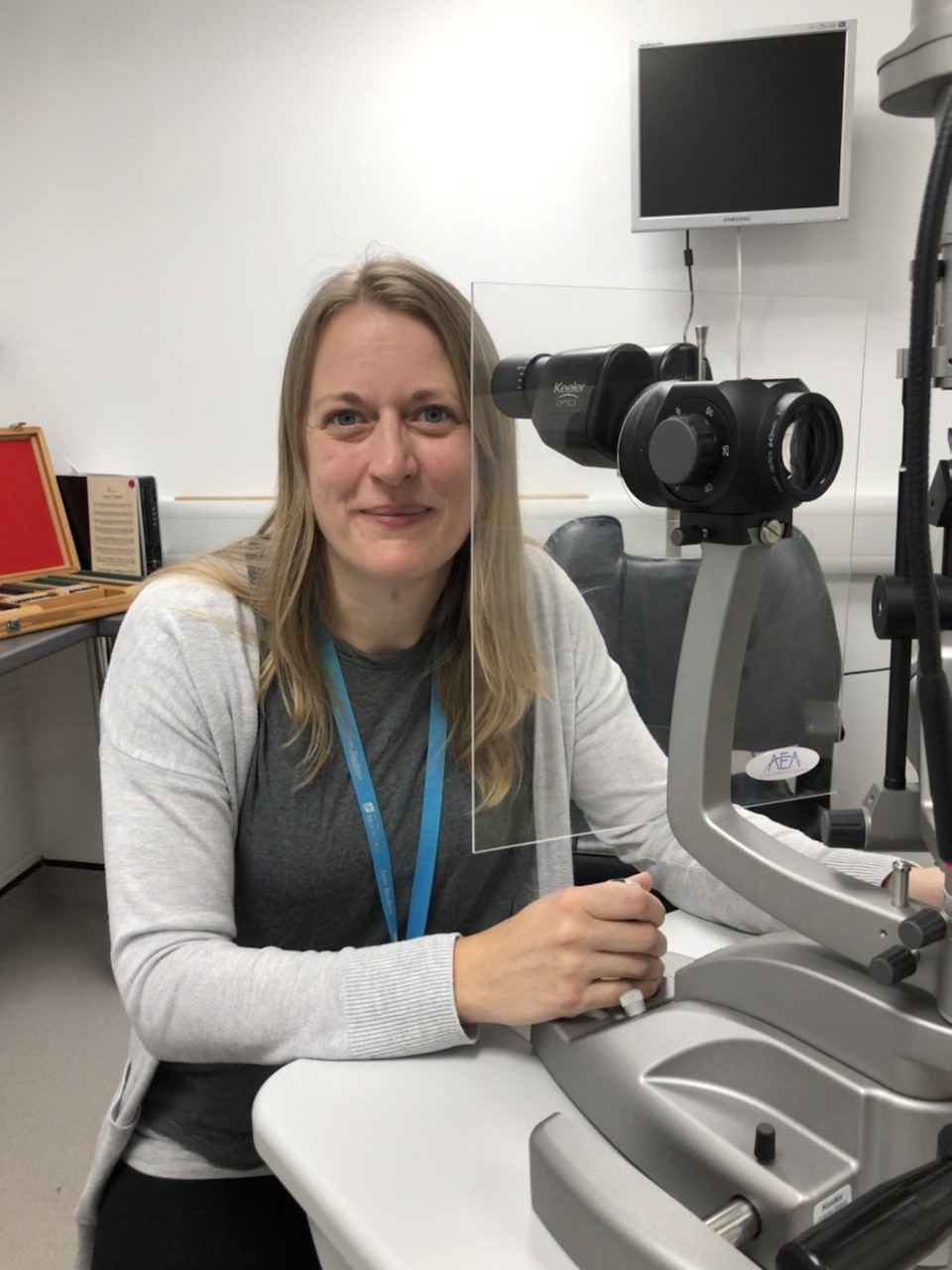Seeing Success Clearly: Bradford Academic Crowned BCLA Myopia Management Practitioner of the Year
A University of Bradford academic has been named ‘Myopia Management Practitioner of the Year’ by the British Contact Lens Association (BCLA) for her work to slow down the progression of short-sightedness in children.

Kathryn Webber - a clinical teaching fellow in Optometry, in the faculty of Life Sciences, set up the clinic at the University in 2016 and uses a range of treatments to ensure children who are myopic (also known as short-sighted) don’t see their condition worsen to a point where serious complications can arise as a result.
Kathryn also uses the clinic to teach optometry students. She said: “Myopia management is quite a new area and there’s a lot we still don’t know, so having the next generation of optometrists understanding the evidence base is important.
“It’s really nice to get the recognition for what we’ve been doing and to see the positive feedback on the clinic as well.”
Myopia has become more common across the world, with 20-40% of the population of the UK, US and Europe now diagnosed as short-sighted. In young short-sighted children, their condition generally progresses over time, meaning that by the time they reach adulthood, their vision without glasses or contact lenses can be quite poor, with an increased risk of sight threatening conditions such as retinal detachment and myopic maculopathy in later life. The myopia management clinic at the University uses specially designed glasses and contact lenses to slow down this progression in their patients, who are typically 7-16 years old.
For Kathryn, the work to manage the condition in children continues, with new treatments becoming available. She said: “There’s a new red light based therapy where the patient looks into an instrument for a couple of minutes a day with a specific wavelength red light, and that has been shown to slow progression [of myopia] in some studies in China so we’ll be looking at utilising that, and we’re doing more and more myopia research.
“My own PhD research is looking into myopia progression in university students, and whether the treatments we use on young children can have an impact on these young adults.”
